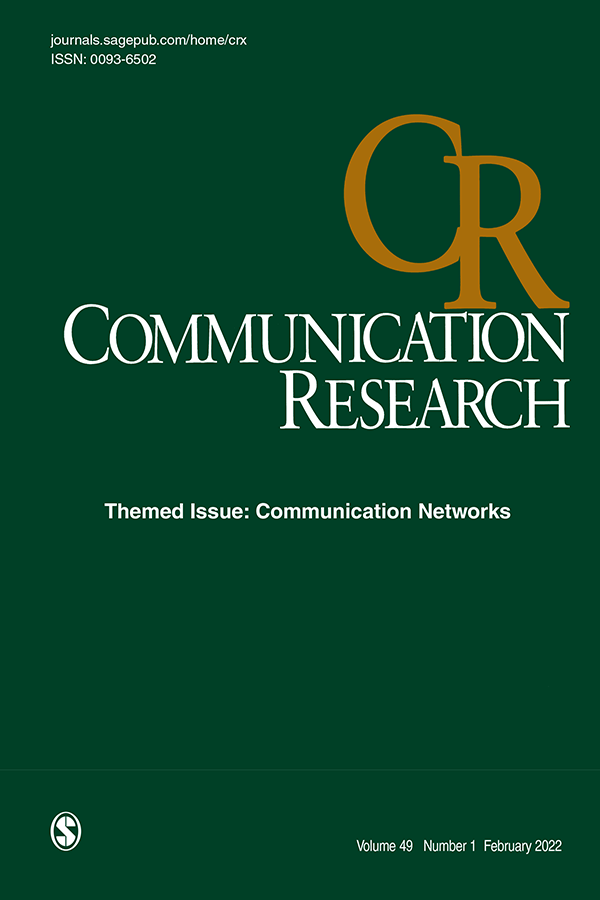有通往幸福的捷径吗?媒体娱乐双进程视角的新见解
IF 3.2
1区 文学
Q1 COMMUNICATION
引用次数: 0
摘要
娱乐研究中的双过程视角区分了享乐主义和享乐主义的娱乐体验。享乐反应被认为是相对轻松地接受无挑战性(或“轻”)媒体票价的结果。相比之下,从理论上讲,快乐的娱乐体验依赖于认知或情感上具有挑战性的内容(如悲剧)和努力的反思。本研究建立在意义即信息框架和意义生成模型的基础上,提出了一个概念上的替代方案。我们认为,观众可以通过在肯定(或“庆祝”)其核心价值观的信息中发现意义,而无需激烈的挑战和认知劳动,就能获得愉悦的体验——特别是有意义的体验。一个在线实验(NStudy1 = 275)和一个预先注册的复制(NStudy2 = 253)与短视频剪辑的观众为这一命题提供了实质性的支持。我们的讨论强调,低努力的享乐和高努力的娱乐模式的分析区分需要修正。本文章由计算机程序翻译,如有差异,请以英文原文为准。
Is There an Easy Path to Eudaimonia? Novel Insights on the Dual-process Perspective in Media Entertainment
The dual-process perspective in entertainment research differentiates between hedonic and eudaimonic entertainment experiences. Hedonic responses are thought to result from relatively effortless reception of non-challenging (or “light”) media fare. In contrast, eudaimonic entertainment experiences are theorized to depend on cognitively or affectively challenging content (e.g., tragedies) and effortful reflection. The present work builds on the meaning-as-information framework and the meaning-making model to suggest a conceptual alternative. We argue that audience members can have eudaimonic experiences—particularly, meaningful experiences—without intense challenges and cognitive labor by detecting meaning in messages that affirm (or “celebrate”) their core values. An online experiment ( NStudy1 = 275) and a pre-registered replication ( NStudy2 = 253) with viewers of short video clips provided substantial support for this proposition. Our discussion highlights that the analytical differentiation of low-effort hedonic and high-effort eudaimonic modes of entertainment needs revision.
求助全文
通过发布文献求助,成功后即可免费获取论文全文。
去求助
来源期刊

Communication Research
COMMUNICATION-
CiteScore
17.10
自引率
0.00%
发文量
20
期刊介绍:
Empirical research in communication began in the 20th century, and there are more researchers pursuing answers to communication questions today than at any other time. The editorial goal of Communication Research is to offer a special opportunity for reflection and change in the new millennium. To qualify for publication, research should, first, be explicitly tied to some form of communication; second, be theoretically driven with results that inform theory; third, use the most rigorous empirical methods; and fourth, be directly linked to the most important problems and issues facing humankind. Critieria do not privilege any particular context; indeed, we believe that the key problems facing humankind occur in close relationships, groups, organiations, and cultures.
 求助内容:
求助内容: 应助结果提醒方式:
应助结果提醒方式:


